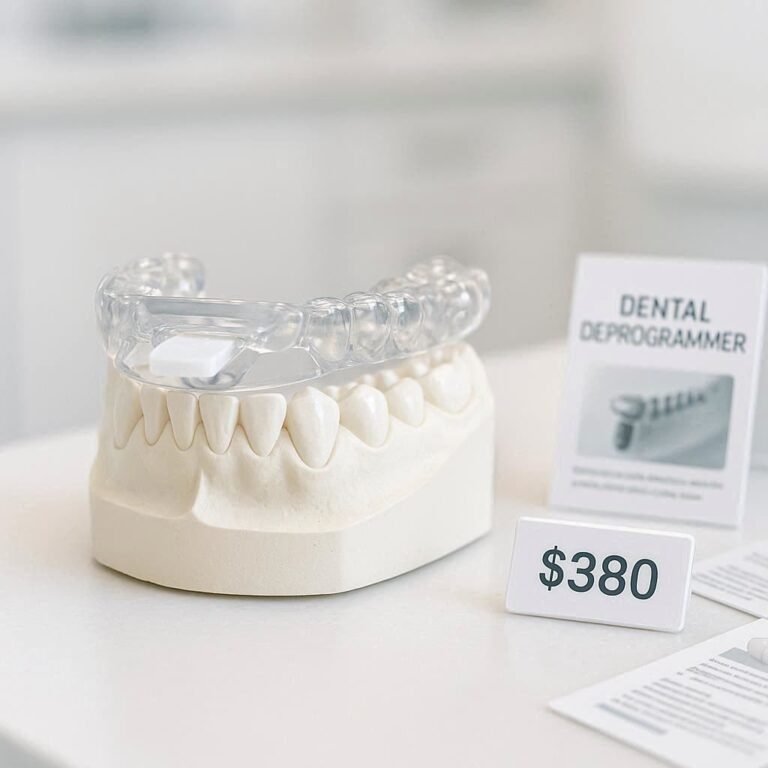Dental Costs in Germany: Comprehensive Guide
Dental care is a vital aspect of maintaining overall health and well-being. In Germany, the quality of dental services is exceptional, thanks to stringent regulations and highly trained professionals. However, the cost of dental procedures can vary significantly depending on the type of treatment, the complexity of the case, and the location of the clinic. This article aims to provide an in-depth look at the costs associated with various dental treatments in Germany, including dental bridges, braces, implants, tooth extractions, and crowns. Whether you’re a resident or planning to travel to Germany for dental care, this comprehensive guide will help you understand what to expect.

Dental Bridge Cost in Germany
Dental bridges are a common solution for replacing missing teeth. They consist of one or more artificial teeth anchored to neighboring teeth or dental implants. The cost of dental bridges in Germany can vary based on several factors, including the materials used, the complexity of the procedure, and the location of the dental clinic.
Factors Affecting Cost:
- Materials: Dental bridges can be made from various materials, including porcelain, metal, or a combination of both. Porcelain bridges are generally more expensive due to their natural appearance.
- Number of Teeth: The number of missing teeth being replaced can significantly impact the cost.
- Type of Bridge: There are different types of bridges, such as traditional, cantilever, Maryland, and implant-supported bridges, each with its own cost implications.
- Clinic Location: Dental clinics in metropolitan areas may charge higher prices compared to those in smaller towns.
Average Cost:
- The average cost of a dental bridge in Germany ranges from €800 to €2,500 per unit. This includes the cost of the artificial tooth and the procedure itself. For more complex cases or higher-end materials, the cost can rise up to €4,000 per unit.
Insurance Coverage:
- German public health insurance (Gesetzliche Krankenversicherung) typically covers a portion of the cost of dental bridges, but the exact amount can vary. Private insurance may offer more comprehensive coverage.
Dental Braces Cost in Germany
Dental braces are used to correct misaligned teeth and jaws, improving both aesthetics and function. The cost of braces in Germany depends on the type of braces and the duration of treatment.
Types of Braces:
- Metal Braces: Traditional metal braces are the most common and usually the least expensive option.
- Ceramic Braces: These braces are less noticeable than metal braces but are more expensive.
- Lingual Braces: These braces are attached to the back of the teeth, making them invisible from the front. They are among the most expensive options.
- Invisalign: These clear aligners are popular for their aesthetic appeal but come at a higher cost.
Average Cost:
- Metal Braces: €1,500 to €3,500
- Ceramic Braces: €2,500 to €5,000
- Lingual Braces: €4,000 to €7,000
- Invisalign: €3,500 to €6,500
Insurance Coverage:
- Children and adolescents may receive partial or full coverage for braces under public health insurance. For adults, coverage is generally limited, and private insurance may be required to cover the costs.
Dental Implants in Germany Prices
Dental implants are considered the gold standard for replacing missing teeth due to their durability and natural appearance. They consist of a titanium post surgically placed in the jawbone, topped with a crown.
Factors Affecting Cost:
- Implant Material: The type of implant used can affect the cost, with titanium being the most common material.
- Number of Implants: The total number of implants needed significantly impacts the overall cost.
- Additional Procedures: Bone grafting or sinus lifting may be required in some cases, adding to the cost.
- Clinic Location: Prices can vary based on the clinic’s location and reputation.
Average Cost:
- The cost of a single dental implant in Germany ranges from €1,500 to €3,000. This price includes the implant itself, the abutment, and the crown. More complex cases or high-end materials can push the cost up to €4,000 or more per implant.
Insurance Coverage:
- Public health insurance typically covers only a portion of the cost, with additional coverage available through private insurance plans.
Tooth Extraction Cost in Germany
Tooth extraction is a common dental procedure performed for various reasons, such as severe decay, infection, or orthodontic treatment.
Types of Extractions:
- Simple Extraction: Performed on visible teeth and is relatively straightforward.
- Surgical Extraction: Required for teeth that are not easily accessible, such as impacted wisdom teeth.
Average Cost:
- Simple Extraction: €50 to €150 per tooth
- Surgical Extraction: €200 to €600 per tooth
Insurance Coverage:
- Public health insurance usually covers a significant portion of the cost of tooth extractions. Private insurance may offer additional coverage for more complex procedures.
Dental Crown Cost in Germany
Dental crowns are used to restore damaged teeth, providing strength and improving appearance. They can be made from various materials, including porcelain, metal, or a combination.
Factors Affecting Cost:
- Material: Porcelain crowns are more expensive than metal or porcelain-fused-to-metal crowns.
- Number of Crowns: The total cost will depend on the number of crowns needed.
- Clinic Location: Costs can vary based on the location and reputation of the dental clinic.
Average Cost:
- The cost of a dental crown in Germany ranges from €500 to €1,500 per crown. High-end materials or more complex cases can increase the price.
Insurance Coverage:
- Public health insurance usually covers part of the cost, with additional coverage available through private insurance.
Conclusion
Understanding the costs associated with various dental treatments in Germany can help you make informed decisions about your dental care. Whether you need a dental bridge, braces, implants, tooth extraction, or a crown, it’s essential to consider factors such as the type of treatment, materials used, and the location of the clinic. Additionally, checking your insurance coverage can help reduce out-of-pocket expenses.
FAQs
- How much does a dental bridge cost in Germany?
- The cost ranges from €800 to €2,500 per unit, depending on materials and complexity.
- Are dental braces covered by insurance in Germany?
- Public insurance covers partial or full costs for children and adolescents; adult coverage is limited and may require private insurance.
- What is the average cost of a dental implant in Germany?
- A single implant costs between €1,500 and €3,000, including the implant, abutment, and crown.
- How much does a tooth extraction cost?
- Simple extractions cost €50 to €150 per tooth, while surgical extractions range from €200 to €600.
- What is the cost of a dental crown in Germany?
- Dental crowns cost between €500 and €1,500 per crown, depending on the material and complexity.
Additional Resources
- German Dental Association
- Federal Association of Statutory Health Insurance Dentists
- European Federation of Periodontology
By carefully considering these factors and planning accordingly, you can ensure you receive high-quality dental care in Germany while managing your expenses effectively.

